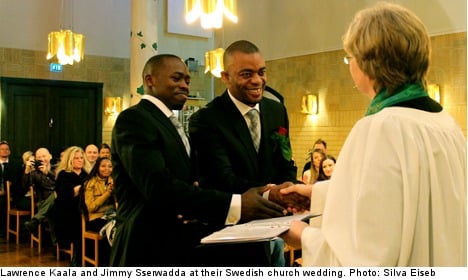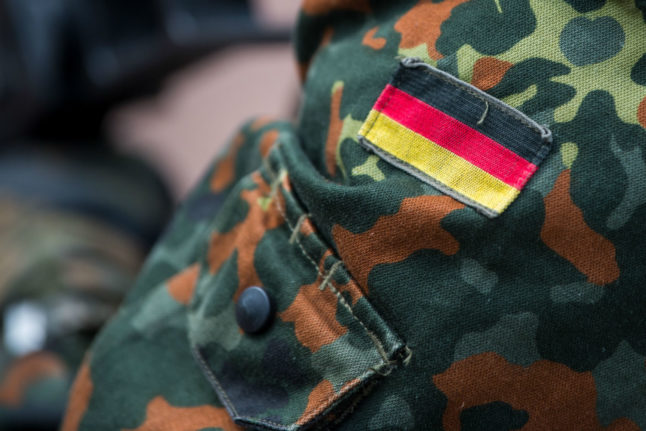“It feels great. We’re so relieved that the Migration Board (Migrationsverket) finally realized the truth,” Jimmy Sserwadda told The Local.
On Thursday, Sserwadda and his husband, Ugandan national Lawrence Kaala, learned that the Migration Board had granted Kaala Swedish residency.
The decision amounts to a stunning reversal for Kaala, who had previously been ordered to leave the country after his application for asylum was denied.
The two had been married in late January in a church in suburban Stockholm in what is believed to be the first time that two Ugandan men had been wed in a church.
The ceremony was supposed to be a happy ending for the two men, who found themselves reunited in Sweden years after their relationship had been cut short due to persecution in Uganda.
While Sserwadda had been granted asylum, Kaala learned just days before the wedding that his application had been denied.
The couple scrambled to refile Kaala’s application to receive a Swedish residence permit on the basis of being married to Sserwadda, but concerns remained that Kaala would still have to return to Uganda to complete the process.
“After our story appeared in English in The Local it began to circulate in Uganda and people started making threats that we would be killed if we returned,” said Sserwadda.
“I think the explosion of media attention made migration officials realize how real the danger was. He couldn’t return after being outed like that.”
In granting Kaala’s permit, the Migration Board waived the usual requirement that resident permit applications based on marriage be filed from the person’s home country.
“Lawrence will not have to go back to Uganda,” Sserwadda explained.
While he is thrilled that he will now be able to live freely in Sweden with the love of his life, Sserwadda remains critical of the handling of their case, and cases of other asylum seekers fleeing persecution for their sexual orientation.
“It’s really a lottery. Sometimes the officials involved don’t even believe you’re gay,” he said.
Sserwadda has vowed to assist LBGT asylum seekers who seek safe haven in Sweden.
“More and more are coming from all over the world and they need our help,” he said.
David Landes



 Please whitelist us to continue reading.
Please whitelist us to continue reading.
Member comments